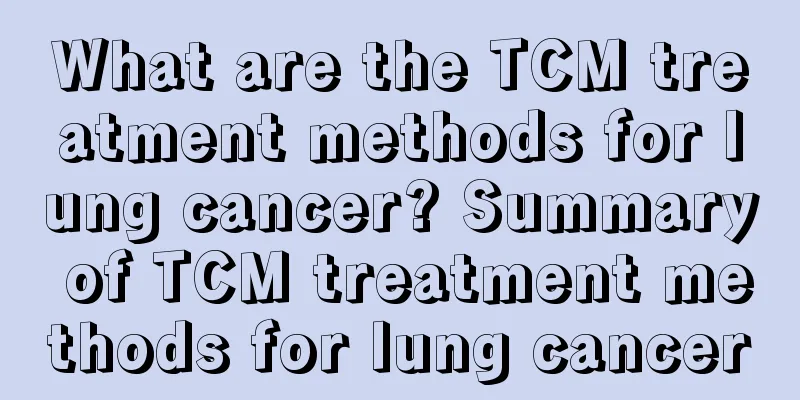Can rectal cancer be cured in its early stages? What are the causes of rectal cancer?

|
Rectal cancer is one of the common malignant tumors in the digestive tract. These tumors may penetrate deep into the pelvic cavity. The surgical treatment process will be difficult, and the recurrence rate after surgery is often high. Therefore, prevention should be done in normal times to avoid gastrointestinal lesions. In the protection stage, effective prevention work should be carried out according to different reasons. What causes rectal cancer? What are the symptoms of rectal cancer? What are the causes of rectal cancer? The cause of rectal cancer is the same as that of colon cancer. It is not very clear at present. In some special areas, such as the Yangtze River Basin, rectal cancer is related to schistosomiasis, but this cause is becoming less and less common. In recent years, the number of patients with inflammatory bowel disease has increased. Chronic inflammation may lead to cancer, but rectal cancer is mainly caused by lifestyle and gene mutation. What are the symptoms of rectal cancer? Typical symptoms of rectal cancer are bloody stools, changes in bowel habits, and alternating diarrhea and constipation. When the tumor grows larger, some patients will have a feeling of tenesmus, which becomes increasingly obvious. If the tumor continues to grow, pain will occur around and inside the anus, eventually leading to inability to defecate, abdominal distension and pain, and symptoms of intestinal obstruction. Can rectal cancer be cured in its early stages? Early rectal cancer can be cured, and the cure rate varies at different stages. The cure rate for stage I rectal cancer is about 90%, similar to colon cancer; the cure rate for stage II is 70% to 80%; and the cure rate for stage III is 55% to 75%. The number of radiotherapy sessions for rectal cancer depends on the condition. Currently, there are two major radiotherapy modes in the world: short-term and long-term. Short-term radiotherapy is 5 days, and long-term synchronous chemoradiotherapy usually requires 25 sessions. If radiotherapy is performed from Monday to Friday every week, it will take 5 weeks. |
<<: What tests are needed if rectal cancer is suspected? 4 tests to screen for rectal cancer
Recommend
How to walk correctly
Walking is a normal and common thing for everyone...
Why do I feel dizzy and nauseous at night?
Everyone thinks that dizziness and nausea are min...
What male friends should know about prostate cancer care
Prostate cancer is the most serious male disease....
How does diet affect the risk of prostate cancer?
Many diets are associated with the risk of prosta...
Does painless hematuria mean bladder cancer?
Hematuria is not necessarily a bladder tumor, but...
The 8 most beneficial massage methods for sleep
Many people know that drinking a glass of milk be...
How to treat renal abscess
Kidney abscess is a purulent infection that mainl...
6 natural remedies for sore throat in autumn
As soon as autumn comes, my throat starts to feel...
The diagnosis method of rectal cancer is an important diagnostic method
When we choose a diagnostic method for rectal can...
What are the causes of colorectal cancer?
Colorectal cancer is a general term for rectal ca...
How to preserve dried fruits in summer
Dried fruits should be some common snacks in ever...
Is Korean steaming good?
Korean steaming is a relatively common method of ...
Is using an electric blanket harmful to the human body?
As winter approaches, many families choose to use...
Analysis of the causes of local recurrence after rectal cancer surgery
Radical resection of rectal cancer is an ideal su...
Can I live more than ten years after colon cancer surgery?
Can you live more than ten years after colorectal...









